Medical articles
Hydromorphone Hydrochloride: What You Need to Know
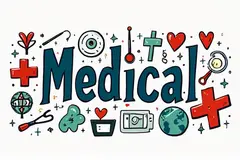 Hydromorphone Hydrochloride: Comprehensive Guide
Hydromorphone hydrochloride is a semi-synthetic opioid derived from morphine. It is approximately 7-8 times stronger than morphine on a weight basis, making it highly effective for managing severe pain. Hydromorphone HCl is available in various forms such as tablets, oral solutions, and injectable... read more...
Hydromorphone Hydrochloride: Comprehensive Guide
Hydromorphone hydrochloride is a semi-synthetic opioid derived from morphine. It is approximately 7-8 times stronger than morphine on a weight basis, making it highly effective for managing severe pain. Hydromorphone HCl is available in various forms such as tablets, oral solutions, and injectable... read more...
How do diabetes monitoring devices work?
 Diabetes monitoring devices have revolutionized the way people manage their blood sugar levels. These advanced tools provide real-time data, enabling individuals to make informed decisions about their health and lifestyle. This article delves into the intricacies of diabetes monitoring technology, explaining how continuous glucose monitors (CGMs) send... read more...
Diabetes monitoring devices have revolutionized the way people manage their blood sugar levels. These advanced tools provide real-time data, enabling individuals to make informed decisions about their health and lifestyle. This article delves into the intricacies of diabetes monitoring technology, explaining how continuous glucose monitors (CGMs) send... read more...
What is a bone scan used for?
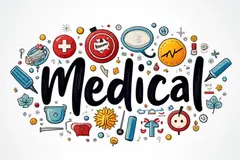 A bone scan, also known as a radionuclide bone scan or nuclear medicine bone scan, is an imaging test that uses small amounts of radioactive material to diagnose and assess various conditions affecting the bones. This non-invasive procedure provides detailed information about bone metabolism, making it invaluable for early detection and diagnosis of bone... read more...
A bone scan, also known as a radionuclide bone scan or nuclear medicine bone scan, is an imaging test that uses small amounts of radioactive material to diagnose and assess various conditions affecting the bones. This non-invasive procedure provides detailed information about bone metabolism, making it invaluable for early detection and diagnosis of bone... read more...
How long do flu symptoms last?
 How Long Does the Flu Last?
The duration of flu symptoms can vary significantly from person to person, depending on factors such as age, overall health, and whether or not antiviral medications are used. Generally, most people experience flu symptoms for about a week, but some may feel unwell for up to two weeks.
When Will My Flu Symptoms End?
The timeline... read more...
How Long Does the Flu Last?
The duration of flu symptoms can vary significantly from person to person, depending on factors such as age, overall health, and whether or not antiviral medications are used. Generally, most people experience flu symptoms for about a week, but some may feel unwell for up to two weeks.
When Will My Flu Symptoms End?
The timeline... read more...
Does coffee cause acid reflux?
 Does Coffee Trigger Acid Reflux?
Coffee is a beloved beverage enjoyed by millions around the world, but for some individuals, it can be a source of discomfort. Many coffee drinkers have experienced heartburn or acid reflux after consuming their morning brew. This article delves into whether coffee truly triggers acid reflux and explores how reducing your... read more...
Does Coffee Trigger Acid Reflux?
Coffee is a beloved beverage enjoyed by millions around the world, but for some individuals, it can be a source of discomfort. Many coffee drinkers have experienced heartburn or acid reflux after consuming their morning brew. This article delves into whether coffee truly triggers acid reflux and explores how reducing your... read more...
Can certain foods cause acne flare-ups?
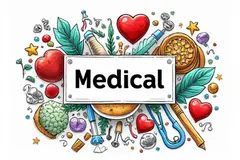 The relationship between diet and skin health has long been a topic of interest among dermatologists, nutritionists, and skincare enthusiasts. While the idea that specific foods can trigger acne is not new, scientific evidence supporting this connection continues to evolve. This article delves into whether certain dietary choices might contribute to or... read more...
The relationship between diet and skin health has long been a topic of interest among dermatologists, nutritionists, and skincare enthusiasts. While the idea that specific foods can trigger acne is not new, scientific evidence supporting this connection continues to evolve. This article delves into whether certain dietary choices might contribute to or... read more...
What`s the normal body temperature?
 What Is Normal Body Temperature?
The concept of normal body temperature has been a subject of medical inquiry for centuries. Understanding what constitutes a "normal" body temperature is crucial for both healthcare professionals and individuals seeking to monitor their health effectively.
Understanding Your Baseline Temp
Your baseline body temperature refers... read more...
What Is Normal Body Temperature?
The concept of normal body temperature has been a subject of medical inquiry for centuries. Understanding what constitutes a "normal" body temperature is crucial for both healthcare professionals and individuals seeking to monitor their health effectively.
Understanding Your Baseline Temp
Your baseline body temperature refers... read more...
Does exercise help with stress management?
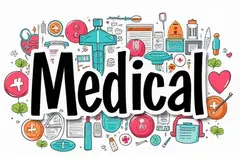 In today's fast-paced world, stress has become an inevitable part of daily life. From work pressures to personal challenges, finding effective ways to manage stress is crucial for maintaining mental and physical health. One of the most recommended strategies to combat stress is through regular exercise. This article delves into how exercise can help reduce... read more...
In today's fast-paced world, stress has become an inevitable part of daily life. From work pressures to personal challenges, finding effective ways to manage stress is crucial for maintaining mental and physical health. One of the most recommended strategies to combat stress is through regular exercise. This article delves into how exercise can help reduce... read more...
Who discovered the hepatitis B virus?
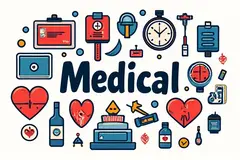 The discovery of the hepatitis B virus (HBV) is a landmark event in medical science, marking the beginning of a new era in virology and public health. This article delves into the history behind the identification of HBV, focusing on the key figure who made this groundbreaking discovery.
History of Hepatitis B Discovery
The journey to identifying hepatitis B... read more...
The discovery of the hepatitis B virus (HBV) is a landmark event in medical science, marking the beginning of a new era in virology and public health. This article delves into the history behind the identification of HBV, focusing on the key figure who made this groundbreaking discovery.
History of Hepatitis B Discovery
The journey to identifying hepatitis B... read more...
What tool measures electrical activity in muscles?
 What Device Measures Muscle Electrical Activity?
The device that measures electrical activity in muscles is called an electromyography (EMG) machine. This sophisticated tool plays a crucial role in diagnosing and understanding neuromuscular disorders by analyzing the electrical signals produced by muscle tissues.
Understanding Electromyography (EMG)... read more...
What Device Measures Muscle Electrical Activity?
The device that measures electrical activity in muscles is called an electromyography (EMG) machine. This sophisticated tool plays a crucial role in diagnosing and understanding neuromuscular disorders by analyzing the electrical signals produced by muscle tissues.
Understanding Electromyography (EMG)... read more...
Causes of asthma?
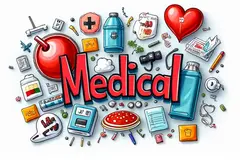 Causes of Asthma: Understanding Triggers and Risk Factors
Asthma is a chronic respiratory disease that affects millions of people worldwide. It can be triggered by various factors, including environmental exposures, genetic predispositions, and allergic reactions. This article delves into the causes of asthma, providing insight into how these triggers impact... read more...
Causes of Asthma: Understanding Triggers and Risk Factors
Asthma is a chronic respiratory disease that affects millions of people worldwide. It can be triggered by various factors, including environmental exposures, genetic predispositions, and allergic reactions. This article delves into the causes of asthma, providing insight into how these triggers impact... read more...
How can I manage acid reflux at night naturally?
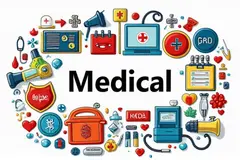 Natural Remedies for Nighttime Acid Reflux
Acid reflux, also known as gastroesophageal reflux disease (GERD), can be particularly bothersome at night when you're trying to sleep. However, there are several natural remedies that can help alleviate your symptoms and improve your quality of sleep.
Natural Remedies for Nighttime Acid Reflux
Managing acid reflux... read more...
Natural Remedies for Nighttime Acid Reflux
Acid reflux, also known as gastroesophageal reflux disease (GERD), can be particularly bothersome at night when you're trying to sleep. However, there are several natural remedies that can help alleviate your symptoms and improve your quality of sleep.
Natural Remedies for Nighttime Acid Reflux
Managing acid reflux... read more...